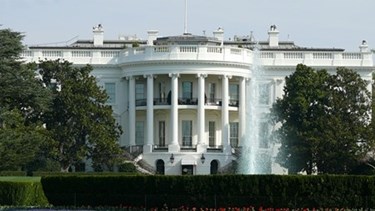White House Threatens Veto Of Device Tax Repeal
By Jof Enriquez,
Follow me on Twitter @jofenriq

As lawmakers in both chambers of Congress appear set to pass a bill repealing the nearly $30 billion medical device tax, the White House recently reaffirmed that President Obama would veto any legislation intended to kill the controversial levy on medical devices and supplies.
According to the Star Tribune, the Republican-led House of Representatives is expected to vote, this week or next, in favor of H.R. 160 — the Protect Medical Innovation Act — a bill sponsored by Rep. Erik Paulsen (R-Minn.) that would repeal the 2.3 percent device tax. If passed by the House, the legislation would be elevated to the Senate, where a counterpart version of the repeal measure has gathered strong bipartisan support.
Even if the bill survives filibustering efforts in Congress, the White House threatened on Monday that President Obama’s advisors would suggest he veto the bill, a measure that opponents say serves the interests of corporations and not the 129 million, mostly middle-class Americans who have gained healthcare coverage since enactment of the Affordable Care Act in 2010.
“After more than five years under this law, 16.4 million Americans have gained health coverage,” stated the Office of Management and Budget (OMB) in a news release. “Up to 129 million people who could have otherwise been denied or faced discrimination now have access to coverage. And, health care prices have risen at the slowest rate in nearly 50 years."
According to the White House, the repeal measure "would provide a large tax break to profitable corporations by repealing the medical device excise tax" and "would increase the deficit to finance a permanent and costly tax break for industry without improving the health system or helping middle-class Americans."
The tax — a key source of funding for Obamacare — puts a 2.3 percent levy on the sale of medical products, from tongue depressors to MRI machines. The Joint Committee on Taxation (JCT) estimated that the device tax will raise approximately $29 billion in revenue between fiscal years 2013 and 2022. Medical device manufacturers and industry groups have strongly opposed the medical device tax since its inception, labeling it as a major detriment to job creation and medtech innovation in the U.S.
“There is a reason why both Republicans and Democrats are in favor of repealing the medical device tax — it’s bad policy that’s harming innovation and killing jobs, especially for our nation’s small businesses,” Rep. Paulsen said in a statement, according to the Star Tribune.
However, the White House claims the medical device industry "will benefit from millions of new consumers who are gaining health coverage under the Affordable Care Act. This excise tax is one of several designed so that industries that gain from the coverage expansion will help offset the cost of that expansion. Its repeal would take away a funding source for financial assistance that is working to improve coverage and affordability and would increase the Federal deficit by $24.4 billion over 10 years."
H.R. 160 does not propose alternative funding to fill the hole created by a device tax repeal, which may hurt its chances to be signed into law. The White House has previously indicated that a repeal measure that is not revenue-neutral would almost assuredly face a presidential veto.
